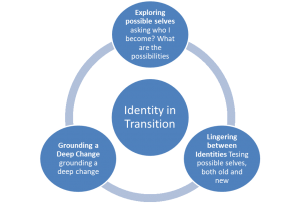One of the areas we focus on at CMCBP is career transitions. Last month we shared a blog on career transitions. As part of Clare’s Doctorate work, she is researching later life career transitions so do expect lots more content on this subject from us ?
Some research we came across this week provided some applicable guidance for those who have been thinking about their future career this week. Kim (2014) researched several professionals who had left a traditional organizational role to try a contemporary career. The aim of these professionals was to create longevity in their career. The research found that there were 4 stages to each person’s career transition which are
- Experiencing disequilibrium in a previous career
- Reflecting on self and context
- Making new professional connections and changes
- Committing to new careers
In this first stage of ‘Experiencing disequilibrium in a previous career’ individuals experience unexpected events or situations or a constantly changing job environment. These changes motivated people to think about they did or did not value about their work and ‘planted the seeds of career transition’. At CMCBP, we have been working with people who are facing this challenge as the change to their industry has made them think about future stability for their career, or those working at home have had chance to realise that there may be other options to how they want to work in the future. Have you had any of these reflections?
For a lot of people the thought of what to do is a blocker… and the reflection exercises that a coaching relationship can support can be so beneficial for this process. The stage developing your network is also something that can be experimented on whilst in your current role. Exploring your work identity and your values are crucial to this experimental stage. One of the lead researchers in working identity is Herminia Ibarra.
“Emotionally it is hard to let go of a career in which we’ve invested much time training and hard work. Letting go is even harder when the alternatives remain fuzzy”.
Herminia Ibarra is a researcher I admire a lot and do recommend following her on twitter for great advice. Her book on Working Identity was one of the first books I read that prompted my interest in really effective ways of thinking of career transitions. In her book she explores working identity transitions and the following is from this book

| Aspects of Working Identity | Strategies for Reworking Identity |
| Working Identity is defined by what we do, the professional activities that engage us | Crafting Experiments: Trying out new activities and professional roles on a small scale before making a major commitment to a difference path |
| Working identity is defined by the company we keep, our working relationships and the professional groups to which we belong | Shifting Connections: Developing contacts who can open doors to new worlds, finding new role models and new peer groups to guide and benchmark our progress |
| Working identity is defined by the formative events in our lives and the story that links who we have been and who we will become | Making Sense: Finding or creating catalysts and triggers for change and using them as occasions to rework our story |
We have also shared her recent video as something to watch for people interesting in career transitions https://www.youtube.com/watch?v=yi1J2nawqFo
Some other reading for career transitions relevant to Covid-19 times are
Reinventing your career in the time of Coronavirus
You have been furloughed. Now what?
Thinking about your future career?
Time for plan B? Here’s how to reinvent your career








